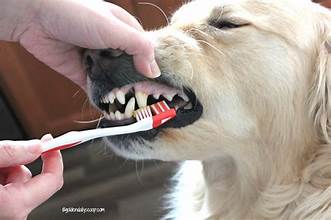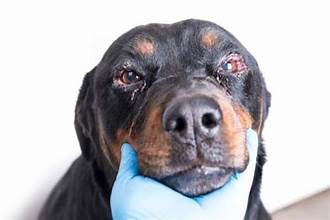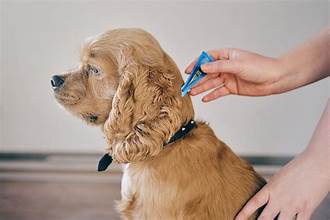Dogs, our furry companions, bring endless love and joy. But just like us, they can also face various health problems. Awareness of these common issues can help you spot signs early and get your pup the needed treatment.
General Health Issues:
Obesity:
Dogs that are overweight are at risk for various health issues, including joint issues, diabetes, and heart disease. It is critical to keep a healthy weight through diet and exercise.

Dental Disease:
Dental problems are widespread in dogs and can cause pain, bad breath, and tooth loss. Regular brushing and vet checkups are essential for maintaining good oral health.

Parasites:
Fleas, ticks, and worms are unpleasant for your dog and can transmit diseases. Regular parasite-prevention medication is critical.

Skin problems:
Skin allergies, infections, and hot spots are all common issues that can cause itching and discomfort for your dog.

Allergies:
Dogs can be allergic to food, pollen, or other environmental triggers. Symptoms can include itchy skin, runny eyes, or sneezing.

Arthritis:
As they age, dogs can develop arthritis, which can cause joint pain and stiffness. Keeping a healthy weight and providing joint supplements can help.
Moisture buildup, allergies, or mites mainly cause ear infections.
Signs may include head shaking, ear scratching, and redness or discharge from the ears.
Dogs can’t tell us exactly how they feel, so being observant is essential. Here are some general signs that your dog might not be feeling well:
Changes in appetite or eating habits:
Not interested in food or eating more than usual
Changes in behavior:
Anxiety, aggression, or unusual clinginess
Changes in elimination:
Is your dog having accidents in the house? Are their stools loose or bloody?
Changes in energy level:
Lethargy, fatigue, or unusual hyperactivity

Changes in water consumption:
Drinking excessively or not drinking enough can indicate health issues
Physical signs:
Is your dog vomiting, coughing, or having difficulty breathing? Are they limping or favoring a leg?
Skin and coat problems:
Excessive itching, scratching, hair loss, or redness can point to allergies, infections, or other problems

Weight loss or gain:
Unexplained weight changes can signal underlying health problems
Prevention is Key
Regular exercise is crucial for your dog’s health. It not only helps prevent obesity, a common health issue, but also promotes joint health and relieves boredom. So, keep up with your dog’s exercise routine and regular veterinarian visits to prevent many dog health problems.
Some tips for keeping your dog healthy:
Regular checkups with your veterinarian are not just a formality but a proactive step in maintaining your dog’s health. These checkups allow your vet to identify potential problems early and keep your dog up-to-date on vaccinations, giving you peace of mind about your dog’s well-being.
Feeding your dog high-quality food is not just a choice but a responsibility. Talk to your vet about the best food for your dog’s breed and age, and ensure that your dog’s diet is a key factor in their overall health and well-being.

Providing plenty of exercise for your dog is not just a routine but an active involvement in their health. Maintaining a healthy weight improves joint health and relieves boredom, making exercise a crucial part of your dog’s health regimen.
Keep your dog up-to-date on parasite-prevention medication.
Brush your dog’s teeth regularly. It helps remove plaque and tartar buildup.
Breed-Specific Conditions:
Some dog breeds are predisposed to specific health problems. For example, short-faced pugs and bulldogs are prone to breathing difficulties, while large breeds like German Shepherds are at higher risk for hip dysplasia. Researching common health concerns for your particular breed can help you be more proactive in preventative care.
Prevention is Key:
Regular visits to your veterinarian are essential for maintaining your dog’s health. These checkups allow your vet to detect potential problems early and recommend treatment options. You can prevent many common dog health issues by maintaining a healthy diet, providing adequate exercise, and keeping your dog up-to-date on vaccinations. So, schedule regular checkups with your vet and follow their recommendations for your dog’s health.
Knowing common dog health issues and taking steps to prevent them, you can help your companion live a long and healthy life. Watch for any concerning signs or symptoms in your dog, and consult your veterinarian promptly.
Disclosure: This page may contain an affiliate link to Amazon.com. We might receive a commission if you follow them and purchase anything from the recommended products. I can assure you that I never recommend anything I don’t trust. Thanks for supporting pawsofability.com!




